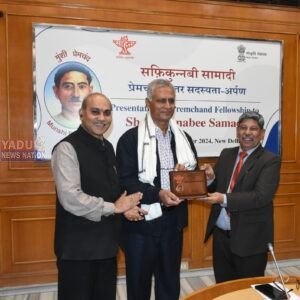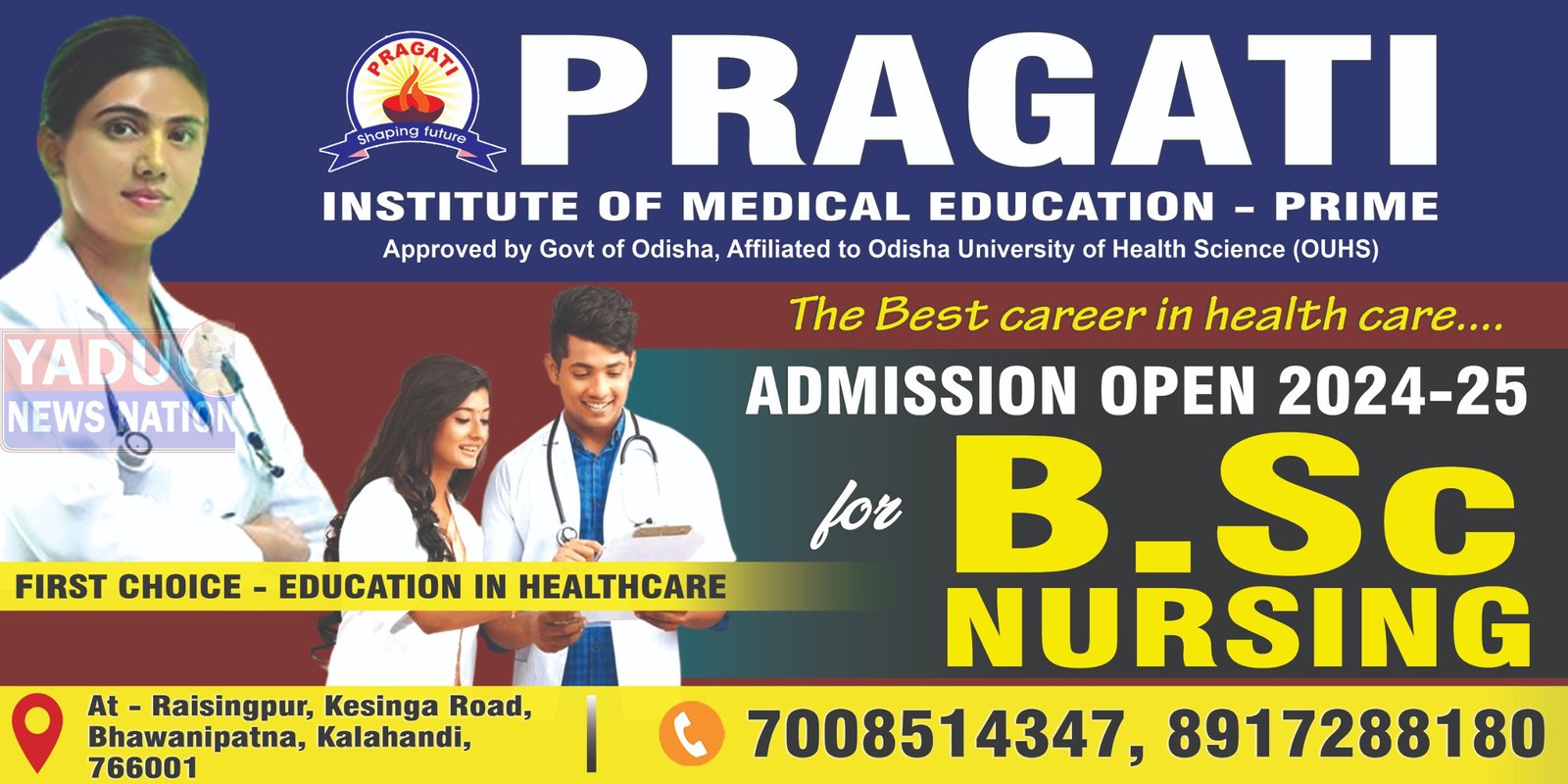New Delhi, YNN (Rajat Bansal): Sahitya Akademi organised the presentation of the Premchand Fellowship on the evening of 19 November 2024, at its auditorium in New Delhi. This fellowship is awarded to scholars conducting research on Indian literature or to creative writers from SAARC countries other than India. This year’s Premchand Fellowship was conferred on Shri Shafiqunnabee Samadi, an eminent writer from Bangladesh.
Dr K. Sreenivasarao, Secretary, Sahitya Akademi, while welcoming the honoured guest of the programme and the present literary enthusiasts, informed the audience that Prof. Samadi is the fourth Bangladeshi writer to receive this fellowship. He also spoke about Prof. Samadi’s literary journey and his contributions to the world of literature.

Dr Madhav Kaushik, President, Sahitya Akademi, felicitated Prof. Samadi with the Premchand Fellowship, following the reading of the citation on Prof. Shafiqunnabee Samadi by Dr K. Sreenivasarao.
In his presidential address, Dr Madhav Kaushik thanked Prof. Samadi for promoting and internationalising Indian literature. He discussed the concept of the “World Citizen” and the role of literature and writers in shaping global citizenship, stating that, in his opinion, Prof. Samadi embodies the ideal “World Citizen.” He further remarked that the concept of global citizenship has been established by writers themselves, and without them, it could not extend beyond cities. Concluding his address, he expressed the hope that Prof. Samadi would continue to serve as a meaningful bridge between India and Bangladesh.
Shri Shafiqunnabee Samadi, in his acceptance speech, expressed his gratitude to Sahitya Akademi for bestowing the fellowship upon him. He shared anecdotes from his time studying comparative literature in Bangla and Hindi, and his aspiration to work on Munshi Premchand, whom he was first introduced to through Bangla. He expressed his desire to connect the people of Bangladesh and India and highlighted the need to introduce Indian languages like Tamil, Malayalam, Punjabi, and Haryanvi to the Bangladeshi public. He spoke of literary translation as a means of cultural exchange, with language acting as a bridge between people. He concluded his speech with hope in the next generation to continue his efforts in translation and fostering connections.
The presentation ceremony concluded with a vote of thanks.


